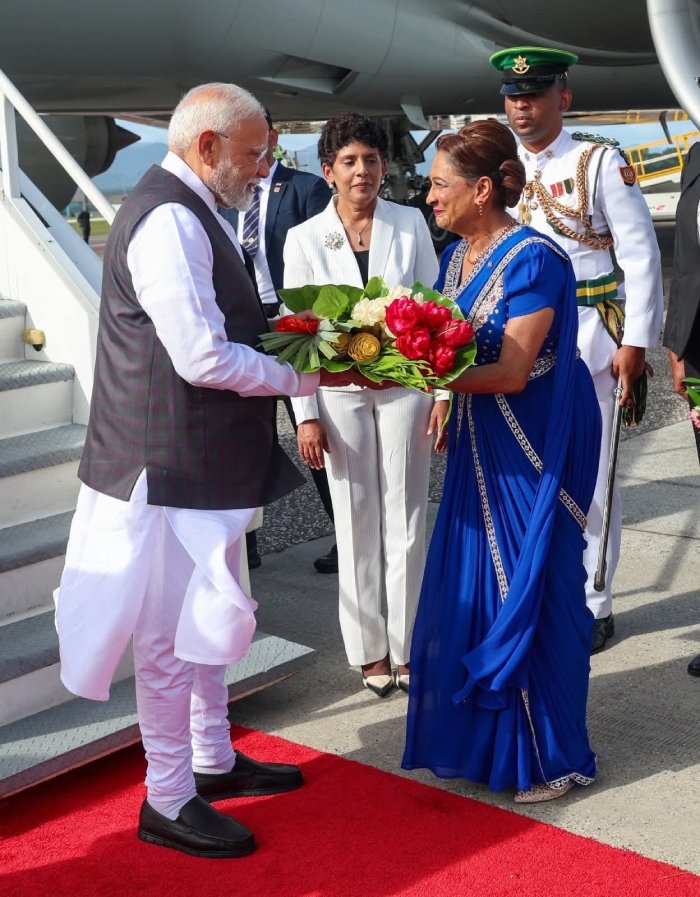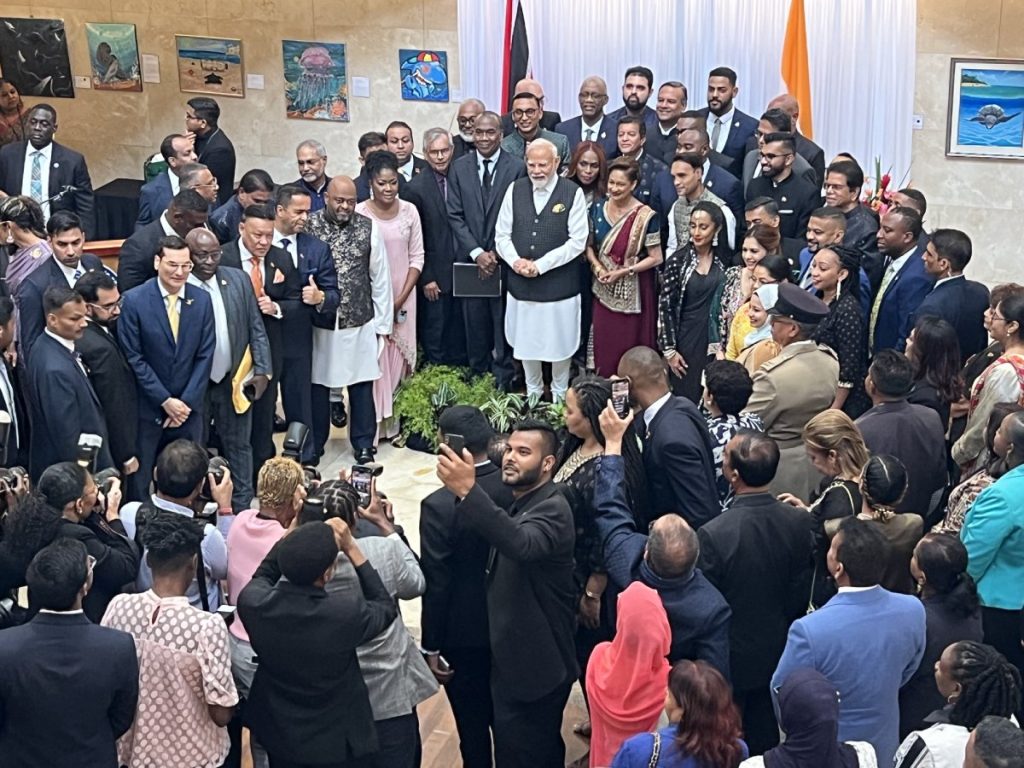Indian Prime Minister Narendra Modi’s visit highlighted the priority that the new Kamla Persad Bissessar government, as opposed to its predecessor, attaches to its relationship with India. It is the first engagement with a foreign leader by the new government. It is a prized visit of one of the most sought after leaders in the world of the fastest growing major economy. And his presence has brought pride among the TT Indian diaspora. The visit may help to deepen ties that were strained under the predecessor that did not show keen interest of a visit by an Indian PM or President although both came to Trinidad and Tobago neighbors in recent years.

The government is commended for a well-organized Modi’s visit with meticulously planned events in the shortest of notice; it was one of the best state visits in recent memory, one in which drew the interests of the entire nation and watched live on TV by record viewers and one of the most inclusive observed.
The visit, the first by an Indian PM since Indira Gandhi some fifty years ago, reflects the growing strategic importance of T&T-India relationship. The visit involved meetings between Modi and the PM and between the Foreign Ministers and senior administrative officials of both countries. There was pre-visit preparation: Discussions and negotiations took place in advance to finalize agreements and set the agenda for the visit, indicating a proactive approach to maximizing the outcomes of high-level engagements. The visit prioritized discussions on crucial bilateral issues such as trade, investment, security, health, agriculture, loan, aid, culture, technology, and other areas.
There is a very strong Indian diaspora in Trinidad and Tobago which acts as a bridge between the two countries. Addressing the diaspora, Modi spelt out various cultural, educational and financial measures that India is undertaking to strengthen links between the homeland and the diasporic Indians. He described the diaspora as Indian Ambassadors.
Several Indian cultural and community organizations exist in T&T. These organizations focus on promoting Indian culture. The governments of India and T&T also engage in cultural exchanges. Many private organizations travel to India and perform in concerts. Similarly, Bollywood artistes perform in Trinidad. India has established institutions like the Pravasi Bharatiya Kendra (now Sushma Swaraj Bhawan) to foster relations with the diaspora and leverage their resources.
The community and cultural programs have helped to boost morale among Indo Trinibagonians and foster connections with India. The elaborate and warm welcome of Modi and the community programs also serve to enhance his political standing in India and projects an image of him as a global leader. In essence, Modi’s visit to T&T is also characterized by a strategic focus, aiming to deepen T&T-India ties across various sectors while also serving domestic political objectives. The Indian media covered the very warm and friendly reception he received in Trinidad.
There was the highest level of diplomatic reception at the PM residence and Diplomatic Center, a ‘state banquet’, signifying the importance the new government places on the relationship with India. This gesture demonstrates the new government’s commitment to strengthening ties with India which can be a great asset in terms of aid, loans, technology, investment, among other benefits.
